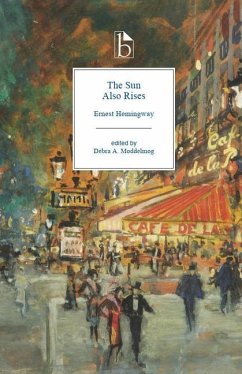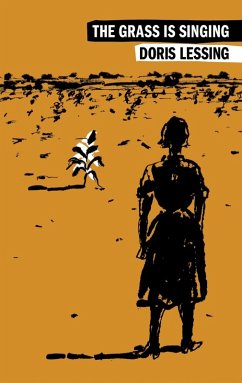![The Sun Also Rises: The Library of America Corrected Text [Deckle Edge Paper] The Sun Also Rises: The Library of America Corrected Text [Deckle Edge Paper]](https://bilder.buecher.de/produkte/61/61491/61491357z.jpg)
The Sun Also Rises: The Library of America Corrected Text [Deckle Edge Paper]

PAYBACK Punkte
6 °P sammeln!
Library of America presents an authoritative new text of Hemingway's classic novel, correcting errors, restoring key changes made to Hemingway's original punctuation, and reinstates references to real people removed for fear of libel With the publication of The Sun Also Rises, based on his experiences in Paris and Spain, Ernest Hemingway solidified his reputation as a leader of literary modernism and established himself as the preeminent voice of the Lost Generation. This Library of America edition presents a newly edited text of The Sun Also Rises, emended in consultation with Hemingway's man...
Library of America presents an authoritative new text of Hemingway's classic novel, correcting errors, restoring key changes made to Hemingway's original punctuation, and reinstates references to real people removed for fear of libel With the publication of The Sun Also Rises, based on his experiences in Paris and Spain, Ernest Hemingway solidified his reputation as a leader of literary modernism and established himself as the preeminent voice of the Lost Generation. This Library of America edition presents a newly edited text of The Sun Also Rises, emended in consultation with Hemingway's manuscript and the typescript setting copy. It corrects numerous errors, restores key changes made to Hemingway's original punctuation, most notably in the novels famous final line, and reinstates references to real people removed by his editor Maxwell Perkins for reasons of impropriety or fear of libel. The Sun Also Rises follows two of Hemingway's most memorable characters-Jake Barnes, an American newspaper correspondent living in Paris, and the impossible object of his affections, Lady Brett Ashley-and a cohort of other young American and British expatriates, amidst their dizzying, alcohol-fueled exploits in Paris, Pamplona, and Madrid (punctuated by a brief idyll in the Spanish countryside). Writing to F. Scott Fitzgerald in May 1926, Hemingway described his novel as "such a hell of a sad story . . . and the only instruction is how people go to hell."













![Some of the Five Hundred Points of Good Husbandry, Newly Corrected and Ed. by H.M.W. [2 Issues] Cover Some of the Five Hundred Points of Good Husbandry, Newly Corrected and Ed. by H.M.W. [2 Issues]](https://bilder.buecher.de/produkte/67/67197/67197592n.jpg)
